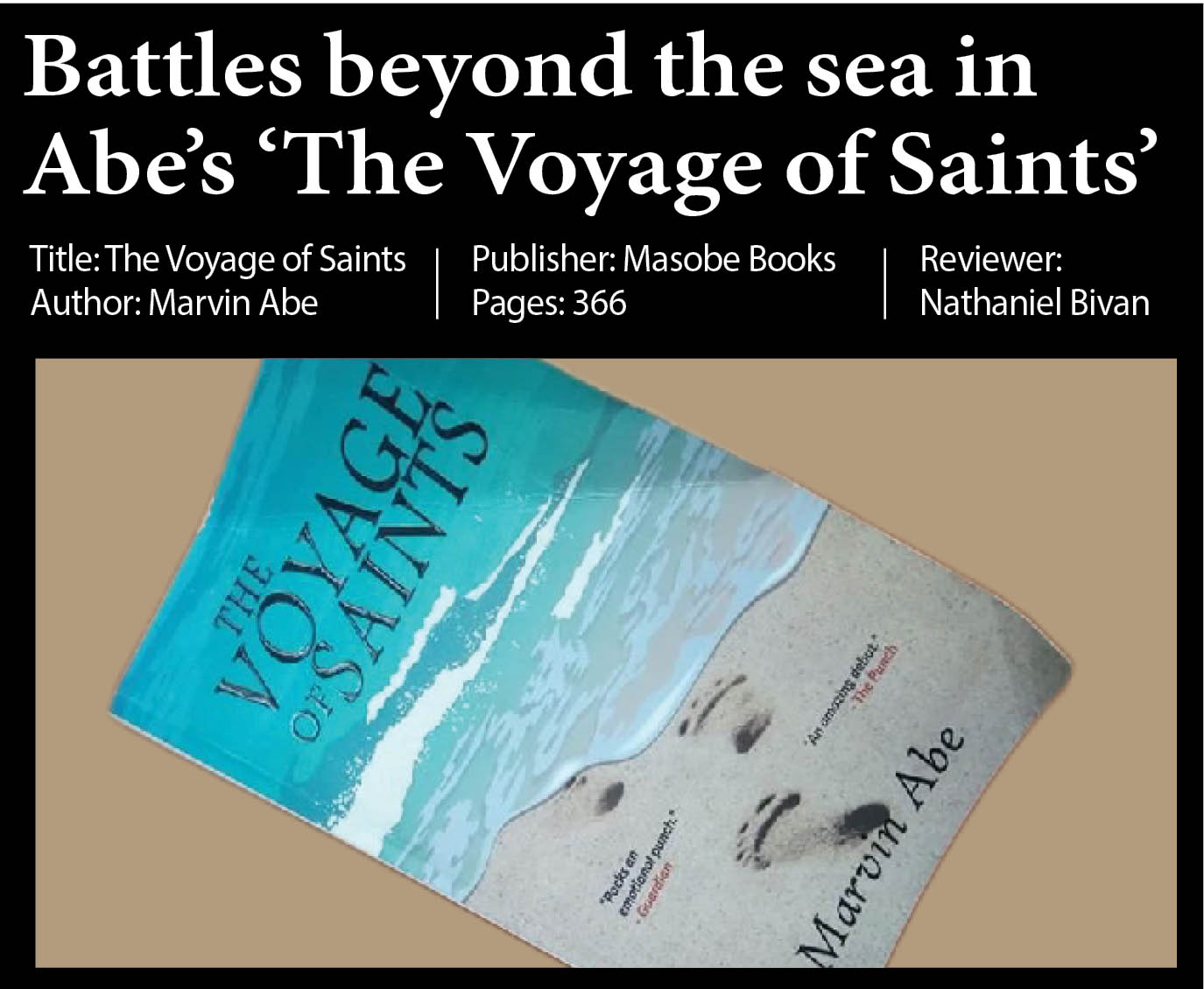Battles beyond the sea in Abe’s ‘The Voyage of Saints’
I have read a good number of books about life at sea, and pirates and treasure hunting. But none was a Nigerian book, about people like me in a Nigerian ship. This was what made me curious about ‘The Voyage of Saints,’ quickly turning me into a willing disciple. But whether I evolved into one is […]

I have read a good number of books about life at sea, and pirates and treasure hunting. But none was a Nigerian book, about people like me in a Nigerian ship. This was what made me curious about ‘The Voyage of Saints,’ quickly turning me into a willing disciple. But whether I evolved into one is a completely different matter.
Another thing made me curious. The author is a mariner, a captain at that. So I expected it to be a detailed work with imagery capable of conjuring the wildest imagination. Plus, there’s great adventure in being thrown into an unfamiliar world. Yes, I have never been on a ship before, not to talk of one that travels the world.
For instance, just last week I read a powerful paper presented by a former national president of the Association of Nigerian Authors (ANA), Dr. Wale Okediran, titled ‘Non-Humanities Professionals as Writers; Challenges and Prospects.’ He had presented it at the University of Ibadan in Oyo State, and I consider myself privileged to have had the opportunity to read it. In this paper, he talked about the advantage of having men and women from the sciences and other fields otherwise unrelated to literature emerge as fiction writers. Examples included John Grisham from a law background, Agatha Christie who in 1917 qualified as a pharmacist’s assistant and drew on her knowledge of pharmaceuticals in many of her novels. There was also Nigeria’s Chinua Achebe who did not finish medical school. All these writers, Okediran said, bring in experiences from their field into their work. What does this mean? It certainly enriches the reader. There’s nothing as beautiful as sailing in distant oceans and meeting and knowing people and things you may never come across.
Yet another area of curiosity for me was the fact that ‘The Voyage of Saints’ is based on true events. So with these thoughts, I dug in. It instantly offered a first line that draws me in: “Michael Ajose was only twelve years old when he decided that he wanted a wife.”
It’s been a while since I read a novel where a relationship between a man and woman begins and blooms and climaxes. Perhaps, not since Abubakar Adam Ibrahim’s ‘Season of Crimson Blossoms’. But this is different. Our central character, Michael Ajose, eventually meets the girl of his dreams while working his way in the professional ladder to become a captain. Again, this ambitious journey doesn’t necessarily begin until Lami comes into his life. You see, this girl, this woman, Lami, is the clincher for our protagonist. She’s the type of woman you encounter, and everything about you appears to change-your attitude to every failure, your courage towards every challenge. In one word, Lami is every man’s dream. She’s an ENABLER.
While Michael and Lami get married, and fight the sea and his relatives, together, Nigeria doesn’t stand still. This is another aspect of the story that gives it a historical fiction flavour. It’s set during Nigeria’s long military era and the covetousness and ruthlessness and doggedness of military dictators sings loud and clear. Through Lami’s brother inlaw’s experiences, the reader is shown just how things work (or don’t) in a regime.
I found this novel pacey at points where I thought there should be more. Then slow towards the end in places I wanted to glide past. But this, I loved about it – the cover and the minimal typos therein.
So, with the power invested in me as one who has read ‘The Voyage of Saints’, from ‘back-to-back’, here’s a little advise:
If you love reading fast-paced novels, you should sit back while reading this, because two lovers don’t sail from Nigeria to Brazil in a day. If you like action and intrigue, inhale and exhale, for the road to becoming a ship’s captain and the turbulence at sea is no easy feat. And finally, if you hate or totally are a sucker for romance tales, put this book down and then pick it up again. This is my verdict: it will toss you between these two worlds you hate and make you laugh, and then cry shamelessly.
